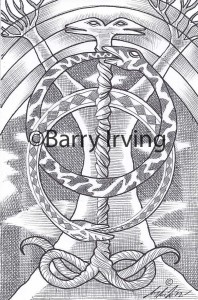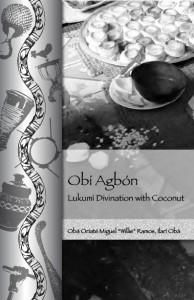by Obá Oriaté Willie Ramos, Ilarí Obá
Begins: June, 2014 (beginning the first Sunday in June)
Cost: $25 a class, payable in advance, on a monthly basis
This seminar, open to all duly ordained Lukumí olorishas, is indispensable. The growing degree of almost total unfamiliarity exhibited by olorishas during our religious ceremonies is disturbing, given the significant growth Lukumí religion has experienced in the past 50 years. The number of myths and legends that have originated because of this ignorance is even more disturbing. This course will provide the necessary foundations for the olorisha by explaining not only the ritual processes, but also the significance and historical basis for these. It is an essential class for all serious olorishas.
The seminar will provide a theoretical understanding of all aspects of the Lukumí ordination ceremony, including the preparatory stages and the procedures followed throughout the various rituals. Although many of the elements that shall be discussed throughout the duration of the seminar are intrinsically linked with the role and functions of the Obá Oriaté, this course will not qualify anyone as an Obá Oriaté.
The classes will run for approximately 6 months, though the length may vary according to the group and its level of commitment. Though this is not a Dilogún seminar, we will cover aspects related with the oracle, and especially the ebó. Participants are expected to learn the ebó in its entirety.
Space is limited so act quickly, but please do not reserve a space if you are not serious about taking the course. Click here to access our registration form: Register. If the link does not work, copy and paste this address to your browser’s search bar: https://spreadsheets.google.com/viewform?hl=en&formkey=dFZ0YlNpNnRaWVNDcHpUNENtZEY4akE6MA.
You must provide your full birth and osha names, date and place of initiation, names of godparents, plus the name and contact information for TWO olorishas that can verify your status as an olorisha. References are a MUST. Without this verification, you CANNOT participate.
Once your information is verified, and the definite start date is determined, you will be required to pay an initial $50.00, NON-REFUNDABLE deposit through Eleda.Org, using Paypal. Once the deposit is made, we will send you the course description and forms that you will need to sign and return to us along with the balance for the first month’s classes.
To participate, all participants MUST have a gmail address. Sign up for one asap—it is free of charge—if you don’t already have one, because the system we use for the seminar will not work with other email servers.






